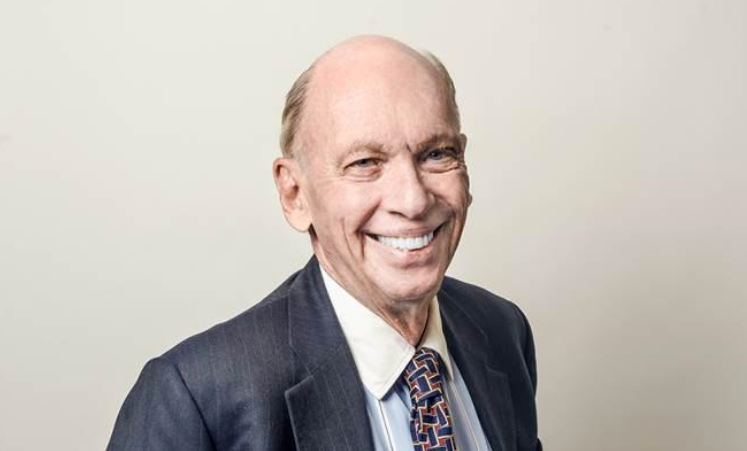Wien was wrong about most things, especially markets

We've just brought you the latest version of Byron Wien's annual top-10 surprises list. It's some interesting reading but is it investible? Let's have a look at how he did last year. One thing we noticed is that he didn't review his own list, which is something he used to do every year. That's a hint of what's to come.
1. Still brooding about his loss of the popular vote, Donald Trump vows to win over those who oppose him by 2020. He moves away from his more extreme positions on virtually all issues to the dismay of some right wing loyalists. He insists, "The voters elected me, not some ideology." His unilateral actions throw policy staffers throughout the government into turmoil. Virtually all of the treaties and agreements he vowed to tear up on his first day in office are modified, not trashed. His wastebasket remains empty.
Verdict: He kinda got this right but Trump is always a paradox. The policies haven't moved much but his rhetoric is just as inflammatory.
2. The combination of tax cuts on corporations and individuals, more constructive trade agreements, dismantling regulation of financial and energy companies, and infrastructure tax incentives pushes the 2017 real growth rate above 3% for the U.S. economy. Productivity improves for the first time since 2014.
Verdict: Thumbs down. Consensus real GDP growth for this year is 2.3% and productivity lagged.
3. The Standard & Poor's 500 operating earnings are $130 in 2017 and the index rises to 2500 as investors become convinced the U.S. economy is back on a long-term growth path. Fears about a ballooning budget deficit are kept in the background. Will dynamic scoring reducing the budget deficit actually kick in?
Verdict: Thumbs up. Earnings per share won't hit his target but the S&P 500 rose to nearly 2700.
4. Macro investors make a killing on currency fluctuations. The Japanese yen goes to 130 against the dollar, stimulating exports there. As Brexit moves closer, the British pound declines to 1.10 against the dollar, causing a surge in tourism and speculation in real estate. The euro drops below par against the dollar.
Verdict: Big thumbs down. Wien was wrong on all fronts on the direction and magnitude.
5. Increased economic growth, inflation moving toward 3%, and renewed demand for capital push interest rates higher across the board. The 10-year U.S. Treasury yield approaches 4%.
Verdict: Thumbs down. Growth picked up but inflation didn't and the 10-year yield never got close to 4%.
6. Populism spreads over Europe affecting the elections in France and Germany. Angela Merkel loses the vote in October. Across Europe the electorate questions the usefulness of the European Union and, by the end of the year, plans are actively discussed to close it down, abandon the euro and return to their national currencies.
Verdict: Thumbs down. If anything, populism receded in Europe after the French election. The euro is at less of a threat of breakup.
7. Reducing regulations in the energy industry leads to a surge in production in the United States. Iran and Iraq also step up their output. The increased supply keeps the price of West Texas Intermediate below $60 for most of the year in spite of increased world demand.
Verdict: Thumbs up. This was a weak prediction because oil was at $53 when he made it. Production didn't surge beyond anything that was expected in the US.
8. Donald Trump realizes he has been all wrong about China. Its currency is overvalued, not undervalued, and depreciates to eight to the dollar. Its economy flourishes on consumer spending on goods produced at home and greater exports. Trump avoids punitive tariffs to prevent a trade war and develops a more cooperative relationship with the world's second largest economy.
Verdict: Thumbs down. You could have stopped reading after "Donald Trump realizes he has been all wrong". The President doesn't do that. USD/CNY fell to 6.5 from 7.0 last year.
9. Benefiting from stronger growth in China and the United States, real growth in Japan exceeds 2% for the first time in decades and its stock market leads other developed countries in appreciation for the year.
Verdict: Thumbs down. This one wasn't bad. Japanese growth climbed to 1.7% from 0.9%. The Nikkei gained 19%, which is a nice year but not at the top of the chart.
10. The Middle East cools down. Donald Trump and his Secretary of State Rex Tillerson, working with Vladimir Putin, finally negotiate a lasting ceasefire in Syria. ISIS diminishes significantly as a Middle East threat. Bashar al-Assad remains in power.
Verdict: Thumbs up. Nailed it, unfortunately there wasn't a real trade here.
Bottom line: He got a few things right and I scored it 4-6 but that's generous because the only thing that was actionable was buying US stocks.



